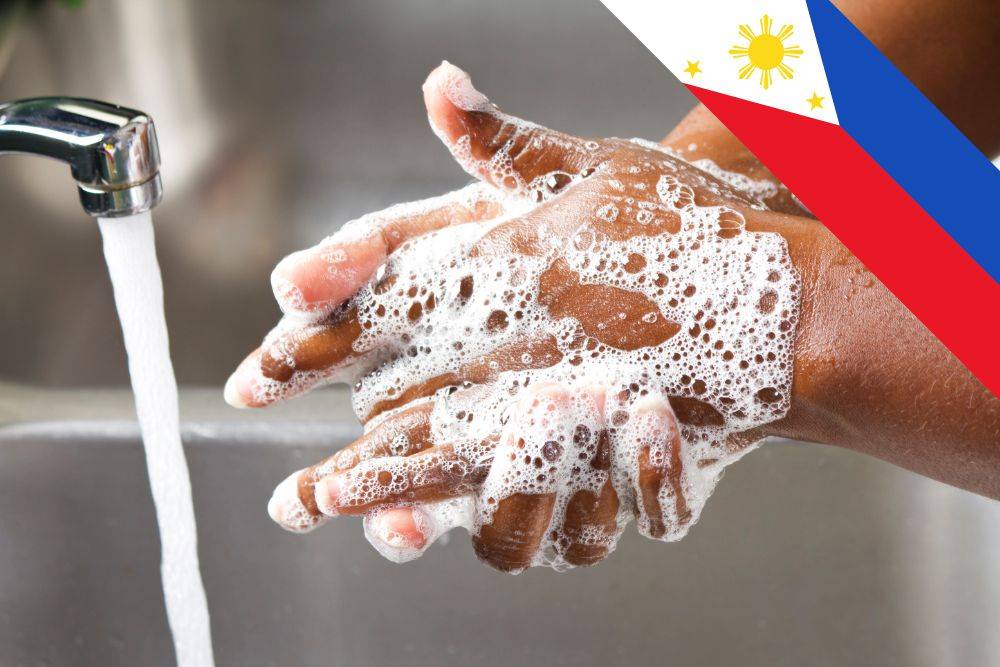A health expert stressed that frequent and proper handwashing with soap and water is a key measure in preventing hand, foot, and mouth disease (HFMD).
Dr. Maria Christina Filomena Batac highlighted the role of hand hygiene during a media forum. She is the Vice Chair of Community Dermatology at the University of the Philippines-Philippine General Hospital.
“We teach children to wash their hands after using the toilet, especially before eating. In a study in China, they found that handwashing effectively prevents HFMD outbreaks,” Batac explained.
Understanding HFMD
HFMD is a contagious viral illness primarily affecting infants and children under 5 years old, though it can also occur in older children and adults. It is caused by viruses from the Enterovirus genus, most commonly the coxsackievirus A16 and enterovirus 71 (EV-A71)
This disease typically presents with a fever and painful red spots that blister in the mouth. Most prominent is a skin rash characterised by red spots or blisters on the palms, soles, buttocks, legs, and arms. Other symptoms include a sore throat, reduced appetite, and general malaise.
Seasonal Prevalence and Transmission
“Hand-foot-mouth disease is commonly observed in countries with changing climates, particularly during summer or autumn,” Batac noted. Unlike foot and mouth disease, which affects livestock such as cows, pigs, sheep, and goats, HFMD is a human-only disease.
Transmission of HFMD occurs through faecal-oral routes and respiratory inhalation. An individual with HFMD can remain contagious for up to five weeks. Due to the virus persisting in faeces for four to eight weeks and in throat secretions for two weeks.
In the Philippines, HFMD is a notable public health concern, particularly among young children. According to the Department of Health (DOH), there have been periodic outbreaks, especially during the warmer months. From January to June 2023, the Department of Health (DOH) reported a significant number of HFMD cases, with higher incidences observed in urban areas. The majority of these cases occurred in children aged 10 years and below. Regions with dense populations, such as Metro Manila, Central Luzon, and CALABARZON, reported the highest number of cases
Potential Complications and Management
While HFMD is usually mild, it can lead to severe complications in some cases. “Children younger than six years old sometimes develop onychomadesis, or loss of nails, one to two months after HFMD,” Batac said. Other serious complications include neurologic diseases such as encephalitis, encephalomyelitis, and polio-like syndromes, as well as myocarditis, pulmonary edema, pulmonary haemorrhage, and even death.
There are currently no antibiotics or antivirals for HFMD. The disease can only be managed through supportive treatment, which includes medication for fever and pain, ensuring proper hydration, nutrition, and sufficient rest and sleep.
Preventative Measures
In addition to handwashing, Batac advised parents, guardians, and carers to disinfect commonly touched surfaces and toys to prevent HFMD transmission. “It’s essential to maintain a clean environment, especially in households with young children, to minimise the risk of spreading the virus,” she emphasised.
The Philippine General Hospital and other health institutions continue to promote public awareness about the importance of hygiene practices in preventing HFMD. Educational campaigns focus on teaching children and adults proper handwashing techniques and other preventative measures.
Conclusion
As HFMD cases continue to emerge, it is imperative for everyone, especially parents and carers, to prioritise hand hygiene and maintain clean environments. By doing so, the spread of HFMD can be significantly reduced, protecting the health and well-being of children and the wider community. The message from health experts is clear: simple actions like proper handwashing can have a profound impact on preventing infectious diseases like HFMD.
Have a pressing question for a doctor? Medical Channel Asia has launched a community forum page where you can get questions answered by a medical specialist. Visit the community forum here.

